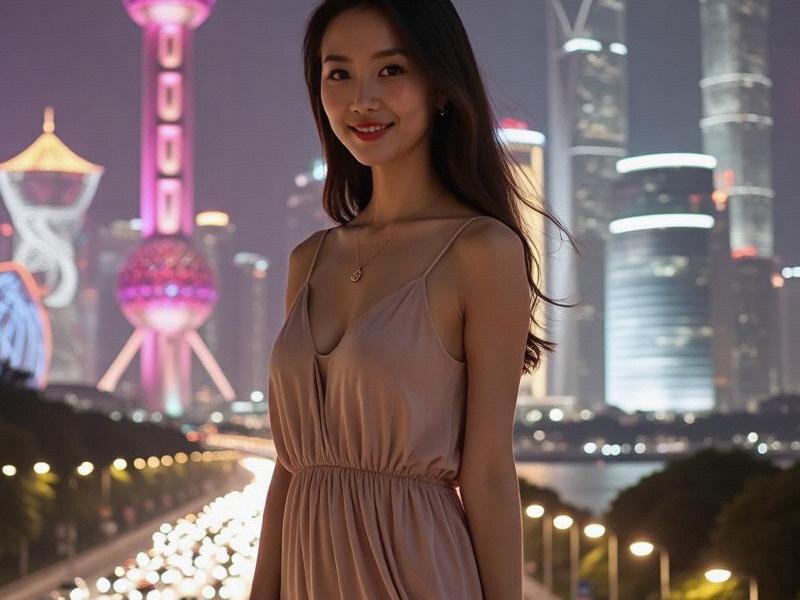This in-depth feature explores Shanghai's dual identity as both guardian of Chinese heritage and laboratory for urban futurism, examining how the city balances rapid technological advancement with cultural preservation through exclusive access to development projects and interviews with city planners.

The rhythmic clatter of mahjong tiles in the shaded alleyways of the French Concession forms an unlikely symphony with the distant hum of quantum computers in Pudong's skyscrapers. This acoustic juxtaposition captures the essence of contemporary Shanghai - a city simultaneously reaching for the future while carefully preserving its soul.
The Architecture of Ambition
Shanghai's skyline tells the story of its economic metamorphosis. The newly completed Shanghai Tower 2.0 isn't just the world's second-tallest building at 748 meters - it's a vertical city housing:
• A floating forest ecosystem at the 300-meter mark
• AI-managed hydroponic farms supplying 20% of occupants' food needs
• Wind turbines integrated into the facade generating 40% of the tower's power
• "Digital twin" technology allowing real-time structural health monitoring
"These aren't just buildings - they're prototypes for urban living," explains architect Li Wei, whose firm designed three of Shanghai's ten smartest towers. The city's construction boom shows no signs of slowing, with 68 new skyscrapers slated for completion by 2026 (Shanghai Urban Planning Bureau).
The Street-Level Renaissance
新夜上海论坛 While Shanghai reaches for the clouds, its historic neighborhoods undergo careful revitalization. The Shikumen Open House Initiative has transformed 1,200 traditional lane houses into:
• Hybrid residences combining original architectural details with smart home technology
• Micro-museums showcasing Shanghai's jazz-age heyday
• Artisan workshops where young designers reinterpret Shanghainese crafts
• Community kitchens preserving local culinary heritage
"Modernization doesn't require erasure," says cultural preservationist Zhang Min, sipping tea in a restored 1930s teahouse. Her team has documented over 5,000 pieces of intangible cultural heritage across Shanghai's districts.
The Innovation Engine
Shanghai's Zhangjiang High-Tech Park has earned its nickname as China's "Silicon Valley East." Key developments include:
• The Quantum Computing Research Center (achieved 512-qubit processing in 2024)
上海龙凤419手机 • Asia's largest biotech incubator housing 300+ life science startups
• An AI regulatory sandbox for testing ethical algorithms
• The world's first 6G experimental zone
"Shanghai doesn't follow trends - it creates them," remarks tech entrepreneur David Wang, whose AI speech recognition company recently went public on the STAR Market. The city now accounts for 22% of China's venture capital investments (2025 PwC report).
The Cultural Confluence
Shanghai's arts scene thrives at the intersection of global and local:
• The West Bund Museum District attracts over 5 million visitors annually
• Digital art collective TeamLab's Shanghai outpost features AI-generated Jiangnan watercolors
• The Shanghai Symphony Orchestra performs with holographic conductors
爱上海同城对对碰交友论坛 • Underground electronic music venues incorporate traditional Chinese instruments
"Cultural innovation is our oxygen," says avant-garde artist Chen Yufei, whose mixed-media installations reinterpret Shanghainese advertising posters from the 1920s.
The Green Metropolis
Shanghai's environmental initiatives set new standards for megacities:
• 98% of public transport now electric or hydrogen-powered
• Urban forests cover 35% of the city's area (up from 18% in 2015)
• The Huangpu River cleanup has restored aquatic biodiversity to 1950s levels
• Vertical farms on 1,200 rooftops supply 15% of the city's vegetables
As dusk falls on the Bund, Shanghai reveals its true nature - not as a city torn between past and future, but as one that has learned to let them coexist. From the neon-lit nostalgia of Nanjing Road to the quantum laboratories of Pudong, this is a metropolis writing the playbook for 21st century urban civilization - one where tradition doesn't hinder progress, but informs it.